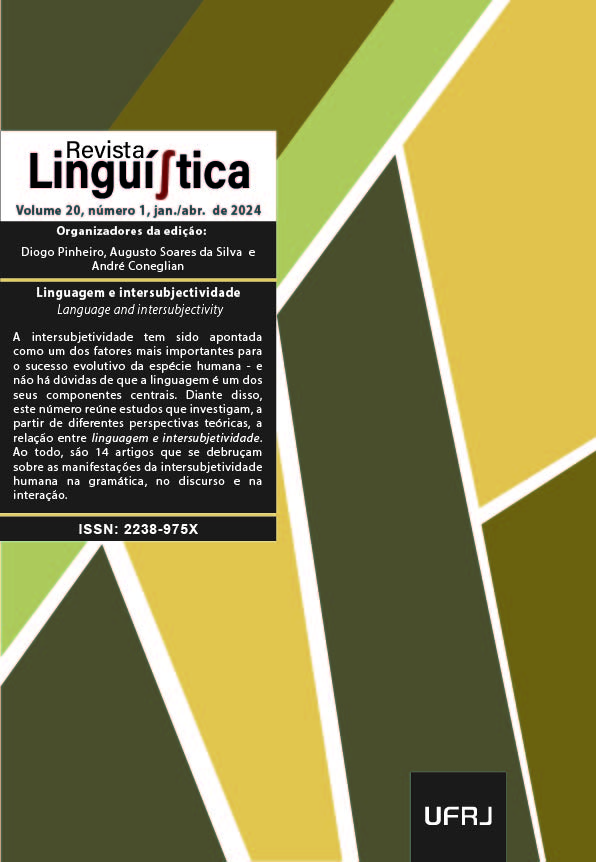Concessive constructions, scalarity and intersubjectivity: contrastive analysis of [ainda que p, q] and [mesmo que p,q]
DOI:
https://doi.org/10.31513/linguistica.2024.v20n1a63301Abstract
From the theoretical perspective of Cognitive Linguistics, this work contrasts the concessive constructions [AINDA QUE P, Q] and [MESMO QUE P, Q] in Brazilian Portuguese journalistic texts. Based on data extracted from the Portuguese corpus (www.corpusdoportugues.br) and the NILC/ São Carlos corpus (https://www.linguateca.pt), the goal is to establish the semantic-pragmatic difference between the mentioned constructions (Goldberg, 1995). Beyond the syntactic subordination relationship highlighted by traditional grammars, the hypothesis is established that, in semantic terms, both constructions signal incongruence between P and Q but differ pragmatically in relation to the notions of factuality and eventuality, associated with scalarity (Dancygier and Sweetser, 2005). Scalarity, in turn, is related to the speaker’s social experience, so the established causal relationship fits into the notion of Extended Intersubjectivity (tantucci, 2021). The preliminary analysis of concessive constructions demonstrates that the constructions [AINDA QUE P, Q] e [MESMO QUE P, Q] differ based on the notions of factuality and eventuality associated with Epistemic Stance (Fillmore, 1990a, b). More specifically, the analysis indicates that the mental association or dissociation of the speaker can be related to the event described in P or, alternatively, to the causal relationship established between P and Q.
Downloads
Published
Issue
Section
License
Copyright (c) 2024 Revista Linguí∫tica

This work is licensed under a Creative Commons Attribution-NonCommercial 4.0 International License.
Authors who publish in the Revista Linguí∫tica agree with the following terms:
The authors maintain their rights, ceding to the journal the right to first publication of the article, simultaneously submitted to a Creative Commons license permitting the sharing with third-parties of published content as long as it mentions the author and its first publication in the Revista Linguí∫tica.
Authors may enter into additional agreements for the non-exclusive distribution of their published work (for example, posting in online institutional or non-profit repositories, or book chapters) so long as they acknowledge its initial publication in the Revista Linguí∫tica.

The journal Revista Linguí∫tica is published by the Post-Graduate program in Linguistics of UFRJ and employs a Creative Commons - Attribution-NonCommercial 4.0 International (CC-BY-NC).









